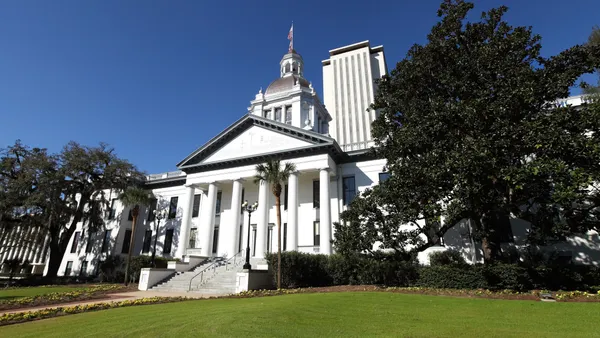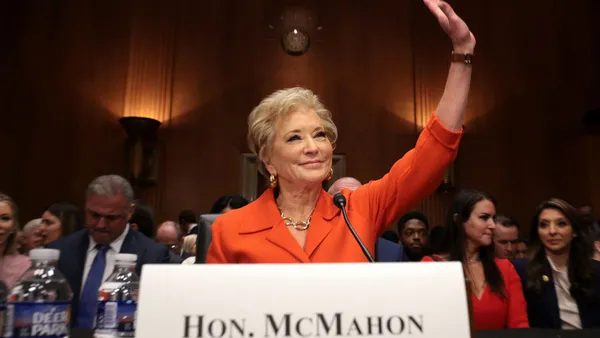Madison Weiss is a higher education policy analyst for the Center for American Progress. Prior to joining CAP, she served as the senior policy associate on federal accountability at The Institute for College Access & Success.
Some lawmakers have recently attempted to undermine higher education institutions by targeting a crucial yet often overlooked process — accreditation. Policymakers must understand what accreditation entails and how it is being attacked in order to effectively protect it.
As the U.S. Department of Education prepares for a high-level rulemaking process next month to discuss this very mechanism, there’s no time to waste.
Think of accreditation as a university’s gold stamp of approval. It means an institution has been through a rigorous peer-review process and met quality standards required by the Education Department. It’s a process long enshrined in federal law and reaffirmed under the Higher Education Act.
It’s a high-stakes matter: Colleges and universities can’t grant their students access to federal aid without a recognized accreditor’s backing. The process is meant to serve as a crucial endorsement for students that prevents subpar institutions from taking advantage of them.
Despite these intended effects, lax federal oversight means accreditors haven’t always shielded students from predatory programs. And unfortunately, the Trump administration weakened regulations in 2019, making it easier for colleges to short-change students without jeopardizing their access to federal funds.
However, the importance of accreditation as a watchdog for higher education cannot be overstated, and the improvement of the system — rather than its dismantling — is essential. Beefing up the federal review of accreditors will ensure their approval is a trustworthy signal of quality.

Yet accreditation is under attack.
Over the summer, Florida Gov. Ron DeSantis sued the Biden administration over the federal government’s reliance on accreditors. DeSantis alleges accrediting agencies are unaccountable and should not have control over Florida's public universities.
The complaint doubled down on DeSantis’s criticism that accreditors may force particular ideological agendas on institutions — a clear dog whistle for his grim campaign to erase LGBTQ+ identities and historically accurate history lessons from school grounds.
In reality, the lawsuit is a flagrant attempt to weaken oversight, as the result Florida seeks — to strip these agencies of their authority — will do nothing to address unaccountable accreditors.
The lawsuit came after Florida’s Legislature passed a bill last year requiring public colleges to switch accreditors each cycle. In early October, North Carolina followed Florida’s lead by passing a similar law.
In practice, this means North Carolina colleges must obtain a new accreditor every 10 years or so. This time, the law passed quickly and quietly, begging the question — should education advocates in other vulnerable states be concerned they might be next?
These recent attacks on accreditation are dangerous.
Florida and North Carolina’s new laws will heighten the costly, bureaucratic hurdle colleges must face to keep access to federal funds rather than address unaccountable accreditors with whom they claim to take issue.
But the Biden Administration’s Education Department has the opportunity — and the power — to address the faults in the system that led to the landscape we find ourselves in today.
The federal rulemaking panel that meets next month to revise college accreditation regulations must revitalize the process and the government’s oversight of it.
This is the only way to ensure colleges and universities maintain the high educational standards students deserve. Recent attacks on accreditation from some lawmakers may be rooted in reasonable complaints about a lack of accountability, but their solutions pose a dire threat to students and the nation’s postsecondary institutions.
Strengthening accreditation, rather than dismantling it, must be the path forward.














